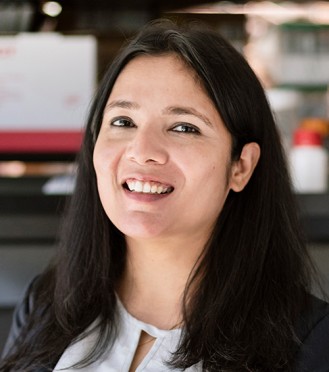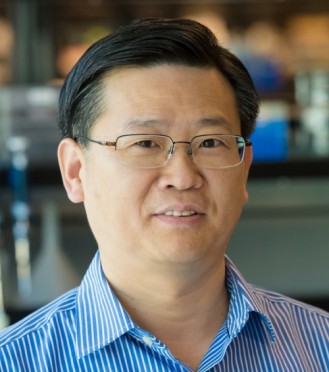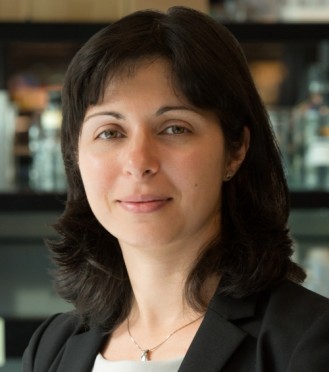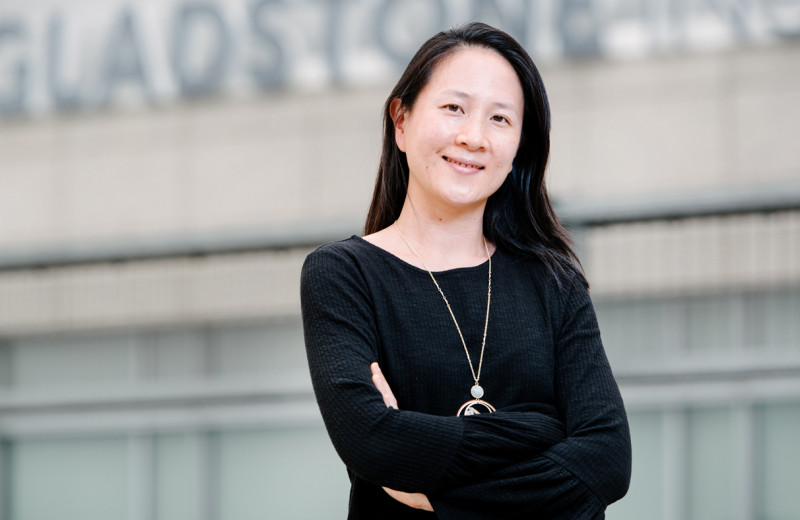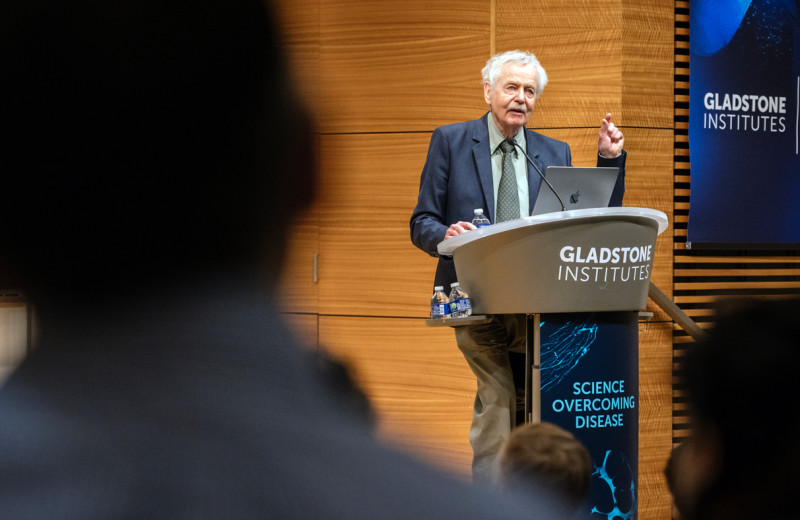Gladstone NOW: The Campaign Join Us on the Journey✕
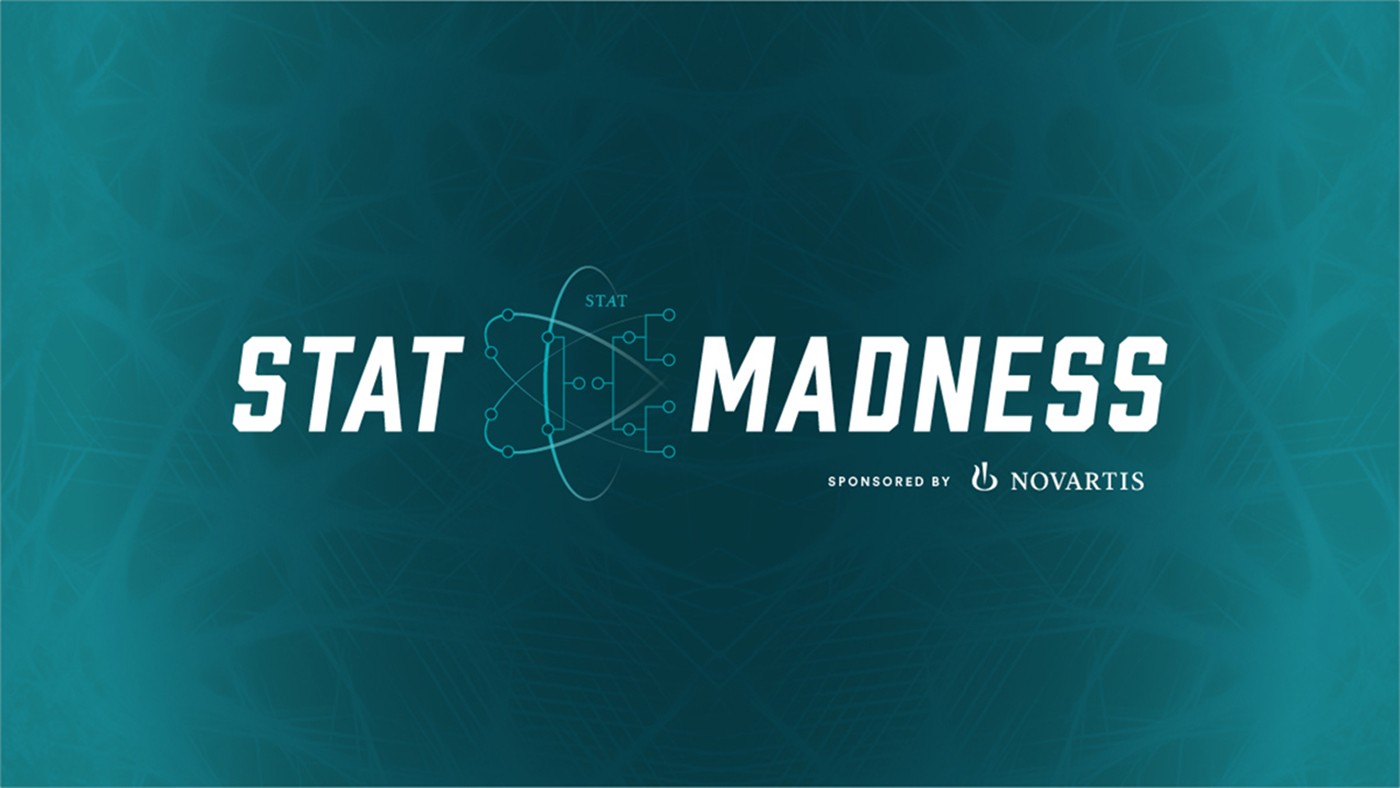
You can vote in this year's STAT Madness competition to help show your support for Gladstone science.
Update: This article was updated on March 28, 2022.
The Super Bowl has been played and the Olympics are over, but there’s another competition on the horizon—and in this one, your participation can make a difference!
STAT Madness is an annual bracket-style competition to identify the most exciting innovations in science and medicine. Institutions from across the country submit examples of their work, and the top 64 discoveries are matched in head-to-head competitions, vying for the popular vote.
This year, three discoveries from Gladstone Institutes—from the laboratories of Yadong Huang, MD, PhD, Jeanne Paz, PhD, and Leor Weinberger, PhD—will be a part of the bracket competition.
The first is an entirely new approach to treat SARS-CoV-2, the virus that causes COVID-19. The second is a new way to treat the side effects of traumatic brain injury. And the third is a repurposed drug already approved by the US Food and Drug Administration (FDA) that could reverse signs of Alzheimer’s disease.
You can visit STAT News or follow #STATMadness to keep up with the latest updates.
Fourth Round Contender: New Class of Antiviral Therapy to Treat COVID-19
First up (and a paper that made it to the fourth round of the competition), the discovery of a new class of antiviral therapy that could be used to treat COVID-19. Weinberger has been working for 20 years on an antiviral approach using therapeutic interfering particles (TIPs). Unlike traditional vaccines that teach the immune system to recognize and respond to viruses, TIPs hijack virus-infected cells and turn them into therapy-producing factories.
In this study, Weinberger along with Sonali Chaturvedi, PhD, their team, and colleagues at VxBiosciences Inc. designed a TIP to interfere with SARS-CoV-2. Treatment with the TIP dramatically reduced viral levels in animals infected with SARS-CoV-2, and prevented them from becoming seriously ill. Importantly, the scientists anticipate that it will be very difficult for viruses to evolve resistance to TIPs, so they should remain effective even as new variants arise.
The group is rapidly moving TIPs for SARS-CoV-2 to clinical trials funded by the National Institutes of Health and the US Department of Defense.
Preventing Long-Term Effects of Traumatic Brain Injury
Gladstone’s second entry is an advance that could lead to a new approach to prevent the long-term consequences of traumatic brain injury. People who survive traumatic brain injury can develop secondary complications that last the rest of their lives, such as seizures, sleep disruption, and cognitive deficits.
Paz and her colleagues discovered that in an inner brain region, the thalamus, increased levels of a molecule called C1q might be partly responsible for these deficits. Remarkably, the scientists showed that targeting C1q with an antibody produced by Annexon Biosciences could prevent the development of secondary complications.
The team hopes that therapies based on this discovery could help improve the lives of the 69 million people around the world affected by traumatic brain injury each year.
Possible New Treatment for Alzheimer’s Disease
Gladstone’s final STAT Madness entry is a breakthrough in the search for new treatments for Alzheimer’s disease. Huang and his team screened a database of FDA-approved drugs to find those that might be able to help Alzheimer’s disease patients. This novel approach identified bumetanide—a drug that has been used for many years to treat hypertension and heart failure—as a likely contender.
Indeed, their study showed that the drug reversed signs of Alzheimer’s disease in mice, as well as in human brain cells. Because bumetanide already has a long track record of safe use, the scientists hope that it could move quickly to clinical trials to determine its potential to treat Alzheimer’s disease.
How Can You Get Involved?
You can visit the STAT website and follow #STATMadness to tune in, read the entries, and vote for your favorites. This is a great opportunity to help support not only the great work being done at Gladstone, but the overall importance of scientific innovation.
Featured Experts
Gladstone Scientist Nadia Roan Elected to American Academy of Microbiology
Gladstone Scientist Nadia Roan Elected to American Academy of Microbiology
Roan has made great strides in understanding how persistent viruses including HIV cause disease and how immunity to viruses shapes human health.
Awards News Release COVID-19 HIV/AIDS Infectious Disease Roan LabA Sculptor of Modern Regenerative Medicine
A Sculptor of Modern Regenerative Medicine
Among his myriad accomplishments, Rudolf Jaenisch—winner of the 2025 Ogawa-Yamanaka Stem Cell Prize—was the first to demonstrate the potential of induced pluripotent stem cells to treat disease.
Awards Ogawa Stem Cell Prize Profile Regenerative Medicine Stem Cells/iPSCsSix Gladstone Scientists Named Among World’s Most Highly Cited Researchers
Six Gladstone Scientists Named Among World’s Most Highly Cited Researchers
The featured scientists include global leaders in gene editing, data science, and immunology.
Awards News Release Corces Lab Doudna Lab Marson Lab Pollard Lab Ye Lab

